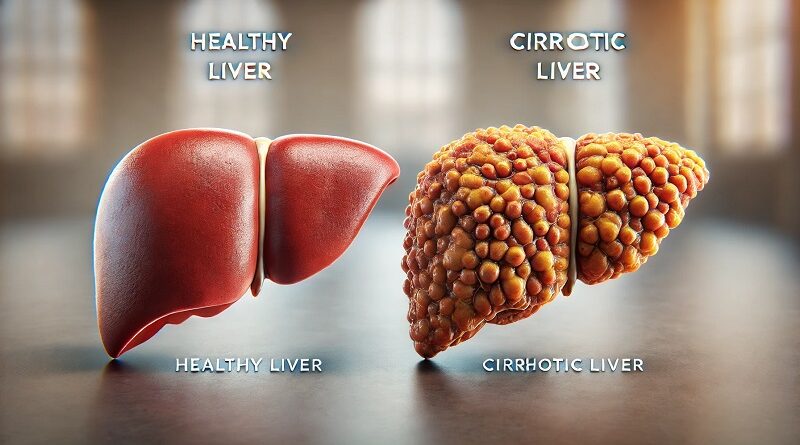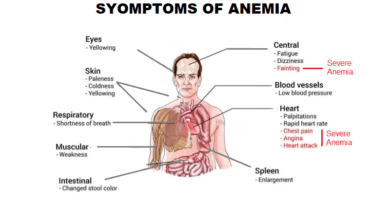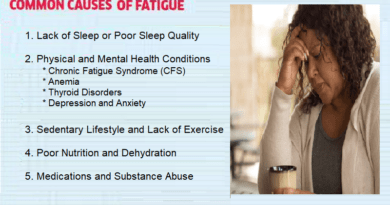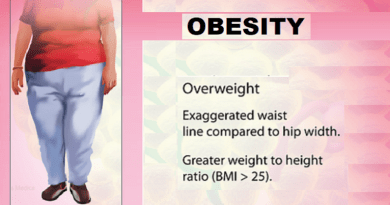The Ultimate Guide to a Healthy Liver: What You Need to Do for Optimal Liver Health
A healthy liver is a powerhouse organ that performs over 500 vital bodily functions, including detoxifying harmful substances, regulating metabolism, producing bile for digestion, and storing essential nutrients. Keeping your liver healthy is crucial for overall well-being. Fortunately, with a few lifestyle changes and healthy habits, you can support your liver’s functions and prevent long-term damage.
In this article, we’ll explore the steps you can take for a healthy liver, focusing on nutrition, lifestyle choices, and practices that promote optimal liver health.
1. Balanced Diet for a Healthy Liver
What you eat has a significant impact on liver functions. A nutrient-dense, balanced diet can help keep your liver in good condition. This will provide the necessary vitamins and minerals to do its essential tasks.
Eat Plenty of Fruits and Vegetables
Fruits and vegetables are rich in antioxidants, vitamins, and fiber, which help protect the liver from oxidative stress and inflammation. Cruciferous vegetables like broccoli, cauliflower, and Brussels sprouts are particularly beneficial because they contain compounds that promote detoxification.
- Leafy greens: Spinach, kale, and arugula are packed with chlorophyll, which helps cleanse the liver of toxins.
- Citrus fruits: Oranges, lemons, and grapefruits contain high levels of vitamin C, which boosts liver detoxification enzymes.
- Berries: Blueberries, strawberries, and raspberries are rich in antioxidants that protect liver cells from damage.
Include Healthy Fats (UnSaturated Fats)
Healthy fat foods, including avocados, nuts, seeds, and olive oil, contain essential fatty acids that support liver cell membranes. Omega-3 fatty acids, in particular, reduce liver inflammation and improve overall liver functions.
Limit Saturated and Trans Fats
Consuming too many unhealthy fats, like those found in fried foods, processed snacks, and fast food, can contribute to fatty liver disease. Fatty liver occurs when excess fat builds up in the liver cells, leading to inflammation and potential liver damage. To protect your liver, limit your intake of saturated fats (found in red meat, butter, and cheese) and avoid trans fats (found in many processed foods).
Stay Hydrated
Proper hydration is essential for liver functions. Water helps flush toxins out of the body and supports the liver’s detoxification processes. Aim to drink at least 8 glasses of water a day, and avoid sugary beverages and excessive caffeine, which can strain the liver.
2. Limit Alcohol Intake
Alcohol is one of the liver’s biggest enemies. When you consume alcohol, your liver works hard to metabolize it, breaking it down into substances that can be eliminated from the body. However, excessive alcohol consumption can overwhelm the liver, leading to fatty liver disease, alcoholic hepatitis, and cirrhosis.
To protect your liver:
- Limit alcohol consumption: Stick to moderate drinking guidelines, which recommend no more than one drink per day for women and two drinks per day for men.
- Take alcohol-free days: Giving your liver regular breaks from alcohol allows it to recover and maintain its functions.
- Avoid binge drinking: Consuming large amounts of alcohol in a short period puts immense strain on the liver and can lead to liver damage.
If you have a history of liver disease or other liver conditions, it’s best to avoid alcohol altogether.
3. Healthy Weight
Being overweight or obese increases your risk of developing non-alcoholic fatty liver disease (NAFLD), a condition in which excess fat accumulates in the liver. NAFLD can lead to liver inflammation and, in severe cases, liver damage.
To maintain a healthy weight and protect your liver:
- Follow a balanced diet: Focus on whole foods, including lean proteins, healthy fats, and complex carbohydrates. Avoid processed foods, sugary snacks, and refined carbs.
- Exercise regularly: Physical activity helps reduce fat buildup in the liver and improves overall liver functions. Aim for at least 150 minutes of moderate-intensity exercise per week, like brisk walking, cycling, or swimming.
- Lose weight gradually: Rapid weight loss can stress the liver. Aim for a steady weight loss of 1-2 pounds per week if needed, by combining a healthy diet with regular exercise.
4. Avoid Toxins and Chemicals
Your liver is responsible for filtering and detoxifying chemicals that enter your body. Exposure to environmental toxins, chemicals, and certain medications can put stress on the liver and impair its functions.
To reduce toxin exposure:
- Avoid unnecessary medications: Overuse of medications, especially pain relievers like acetaminophen, can harm the liver. Always follow the recommended dosage and avoid combining medications with alcohol.
- Limit exposure to harmful chemicals: Many household cleaners, insecticides, and aerosols contain chemicals that can be absorbed through the skin or inhaled, putting extra strain on the liver. Use natural cleaning products when possible and ensure good ventilation when using chemical-based products.
- Be cautious with supplements: Some dietary supplements, especially those marketed for weight loss or bodybuilding, contain ingredients that can be harmful to the liver. Always consult with a healthcare professional before taking new supplements.
5. Exercise Regularly
Regular physical activity offers many benefits for liver health. Exercise helps the liver metabolize fat, reduces inflammation, and improves insulin sensitivity, which is important for maintaining liver functions.
Benefits of Exercise for the Liver:
- Fat reduction: Exercise helps lower the amount of fat stored in the liver, reducing the risk of fatty liver disease.
- Improved circulation: Physical activity improves blood flow to the liver, enhancing its ability to filter toxins and perform its metabolic roles.
- Reduced inflammation: Regular exercise has anti-inflammatory effects, which can prevent liver damage.
Target for a mix of cardio exercises (like walking, running, or swimming) and strength training (like lifting weights) to maximize the benefits for your liver.
6. Get Regular Checkups and Screenings
Liver disease often progresses silently, with few or no symptoms until the damage is advanced. Regular checkups with your healthcare provider can help catch liver problems while still early, before they become more serious.
- Blood tests: Liver function tests can measure enzymes and proteins in your blood to assess how well your liver is functioning.
- Imaging tests: Ultrasounds, CT scans, or MRIs can provide a detailed picture of your liver’s condition.
- Liver biopsies: In some cases, a liver biopsy can be necessary to diagnose specific liver diseases.
7. Quit Smoking
Smoking is harmful to many organs, including the liver. The toxins in cigarette smoke can increase inflammation and damage liver cells, impairing its ability to function properly. Quitting smoking is one of the best things you can do for your liver and overall health.
SUMMARY
For a healthy liver, the key is to adopt a holistic approach that includes proper nutrition, regular exercise, avoiding harmful substances, and staying hydrated. By making these lifestyle changes, you can support your liver’s ability to do its vital functions and reduce the risk of liver disease. Remember, prevention is always better than cure—so take care of your liver now to enjoy long-term health and vitality.




